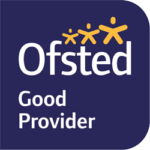Religion & World Views – Subject Intent
To deliver a Religious Education curriculum to engage, inspire, challenge children’s thinking and prepare them for life in a multi-cultural society.
To equip children with the knowledge and skills to answer challenging questions, explore different religious beliefs, values and traditions and develop a more rigorous understanding of the numerous religious traditions, beliefs and practices that are followed.
To ensure children know how religious education promotes discernment and enable children to combat prejudice, preparing them for adult life, employment and life-long learning.
Further information:
‘Teachers encourage pupils
to read in a variety of ways.’
‘Pupils feel safe in school. Bullying is rare.’
‘There are respectful relationships between adults and pupils.’
‘ Pupils, including those with special educational needs and/or disabilities (SEND), are given extra support if
they fall behind.’
‘There are consistent routines and high expectations.’
‘Leaders are working to further improve their curriculum.’
‘Pupils enjoy taking part in a wide range of extra-curricular experiences, such as rugby club and choir.’
‘Pupils move around the school sensibly.’
‘The safeguarding of pupils is a priority in school. Staff know pupils and families well.’
‘Pupils enjoy attending this school.’
‘One pupil, typical of many, said, ‘We should treat others as we expect to be treated ourselves.’
‘Pupils enjoy their role as ambassadors for the school, welcoming visitors and organising fundraising events.’
‘Learning builds on what pupils already know. Teachers have strong subject knowledge and support pupils to develop their reasoning skills.’
‘Leaders and teachers promote a respect of different cultures and ideas.’
‘Pupils are respectful of people with different backgrounds or beliefs.’
‘Leaders ensure that staff have the training and support to meet the needs of pupils with SEND’
‘Staff have given careful thought to what
children will learning each term.’
‘Pupils are supportive of one another’
‘Leaders know how important it is for pupils to enjoy reading.’
‘Children enjoy exploring the purposeful learning environment that staff have created for them.’
‘Pupils listen carefully to other people’s opinions.’
‘Pupils learn how to stay safe, including when using the internet.’
‘Pupils learn to develop their independence from an early age.’
‘Leaders encourage pupils to take on responsibilities in school.’
‘Across
the school, pupils behave well both in lessons and during social times.’
‘ The early years staff know their children well.’
‘One group of pupils is supporting the community to develop a sensory garden in
the local area.’
‘In
mathematics, the ‘small steps’ of knowledge that pupils must learn are clearly identified.’
‘Pupils are confident that staff will help them if they have any concerns.’
‘ Children learn to read as soon as they start at school. Welltrained staff skilfully help children to read with increasing confidence.’



